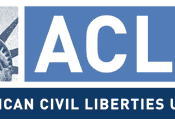"Congress shall make no law . . . abridging the freedom of speech" (US Constitution, Amendment 1) Once in a while, a case comes along that forces us to redefine our views about what "freedom of speech"(Amendment 1) truly means. The case of Collin v Smith is a classic example. In 1977-78, the American Nazi party requested permission to march in the village of Skokie, Illinois, a village predominantly populated by Jews, many of whom were Nazi camp survivors. They were denied a permit based on several village ordinances. The Nazi party, along with the American Civil Liberties Union, sued the village of Skokie, saying the ordinances violated the First and Fourteenth Amendments of the US Constitution (Woll, 117). The result was a landmark court ruling which redefined how many Americans thought of free speech.
The National Socialist Party of America (NSPA) is a self described Nazi party. After declaring, on May 1, 1977, an intent to march in front of the Skokie Village Hall, the village members obtained a preliminary injunction, prohibiting the planning and execution of the said march.
On May 2, 1977, the Village put three ordinances into effect that would prohibit such marches as the one being planned by the NSPA. The NSPA held that the ordinances violated their right to free speech and freedom of assembly, as well as the Due Process clause of the Fourteenth Amendment. Village Ordinance 994, enacted May 2, 1977, required a permit for all parades or assemblies of over 50 people. In order to obtain a permit, the group would need $350,000 in liability and property insurance. Also, officials must be satisfied that the assembly will not show any prejudice toward people of any one "religious, racial, ethnic, national or regional affiliation" (119). Village Ordinance 995 prohibited the display...



Good job
well written and well thought up truly \'A\' materal
3 out of 3 people found this comment useful.